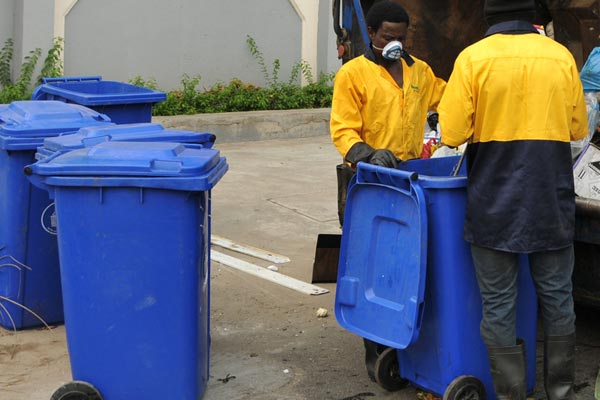In an era marked by technological advancement, even the mundane task of rubbish disposal has undergone a transformation. Traditional methods of waste management are being replaced by innovative technological solutions that not only streamline the process but also address environmental concerns. One such city embracing modern rubbish disposal techniques is Melbourne, where technology plays a pivotal role in rubbish removal.
Smart Waste Management Systems:
Gone are the days of indiscriminate dumping and inefficient collection methods. Smart waste management systems are revolutionising how rubbish is handled in urban areas. These systems employ sensors and IoT (Internet of Things) technology to monitor bin fill levels in real-time. In Melbourne, smart bins equipped with fill-level sensors are strategically placed across the city. When a bin reaches its capacity, it automatically sends a signal for collection, optimising routes and reducing unnecessary pickups.
Waste Sorting Technologies:
Proper waste sorting is essential for effective recycling and minimising environmental impact. Manual sorting processes are labor-intensive and prone to errors. However, with advancements in technology, automated sorting systems are becoming increasingly sophisticated. In Melbourne, facilities utilise state-of-the-art sorting technologies such as optical sensors and magnetic separators to separate different types of waste efficiently. This not only enhances recycling rates but also reduces the burden on landfills.
Innovative Recycling Techniques:
Conventional recycling methods often face challenges such as contamination and limited material recovery. To overcome these obstacles, innovative recycling techniques have emerged. One such technique is chemical recycling, which breaks down plastic waste into its molecular components for reuse in new products. Melbourne has been at the forefront of adopting such technologies to tackle its plastic waste problem effectively. Additionally, advancements in composting technologies enable the conversion of organic waste into nutrient-rich compost, promoting sustainable agriculture practices.
Waste-to-Energy Solutions:
As landfills reach capacity and concerns over greenhouse gas emissions escalate, waste-to-energy solutions offer a viable alternative. Technologies such as anaerobic digestion and incineration convert organic waste into biogas or electricity. In Melbourne, waste-to-energy facilities contribute to the city’s renewable energy goals while reducing the volume of waste destined for landfills. However, careful consideration must be given to environmental impacts and emissions control to ensure these technologies are sustainable in the long run.
Community Engagement through Technology:
Engaging the community in waste management efforts is crucial for the success of any rubbish disposal initiative. Technology plays a vital role in facilitating this engagement. Mobile applications and online platforms provide residents with information on waste disposal schedules, recycling guidelines, and educational resources. In Melbourne, initiatives such as “Recycle Right” leverage technology to empower citizens to make informed decisions about waste disposal, fostering a culture of sustainability.
Challenges and Future Outlook:
Despite the numerous benefits technology brings to modern rubbish disposal, challenges persist. Implementation costs, technological barriers, and resistance to change are hurdles that need to be overcome. Additionally, ensuring equitable access to technology and addressing digital divide issues is essential for inclusive waste management practices. Looking ahead, continued research and innovation will drive further advancements in rubbish disposal technologies, paving the way for a cleaner and more sustainable future.
Conclusion:
The role of technology in modern rubbish disposal cannot be overstated. From smart waste management systems to innovative recycling techniques, technology is transforming how we handle and process waste. These advancements are evident in the approach to rubbish removal in Melbourne, where technology-driven solutions are driving efficiency, promoting sustainability, and empowering communities to actively participate in waste management efforts. As technology continues to evolve, the future of rubbish disposal looks promising, with the potential to mitigate environmental impact and create a cleaner, greener planet.


